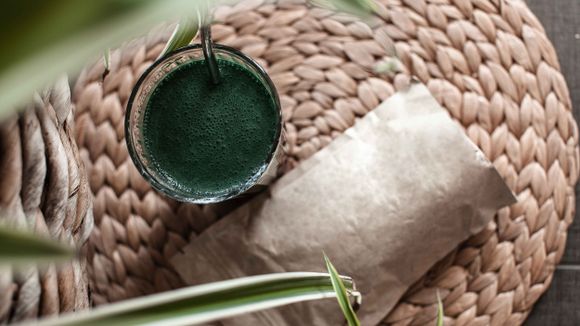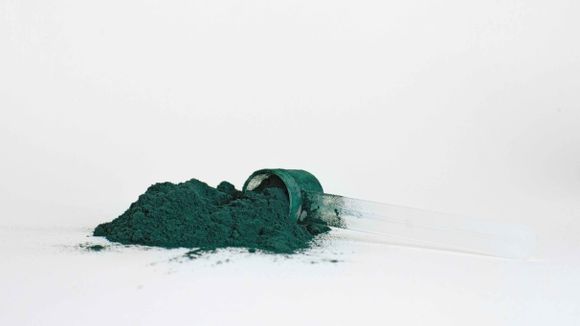Botanical Background of Spirulina
Spirulina belongs to the family of Oscillatoriaceae and is classified as a cyanobacteria due to its blue-green coloration. This microalgae exists in the form of multicellular, filamentous spirals. It thrives in alkaline freshwater bodies, particularly lakes, rivers, and ponds. Interestingly, spirulina is also capable of surviving in extreme conditions, such as high salinity and pH, demonstrating an impressive adaptation ability.
The Nutrient and Antioxidant Powerhouse
Spirulina is renowned for its high protein content, which is unusually complete for a plant source, containing all essential amino acids3. It is also packed with vitamins (especially B vitamins), minerals, and antioxidants, like beta-carotene and phycocyanin. The latter is a pigment-protein complex responsible for spirulina’s distinct blue-green color and carries notable antioxidant properties.
Immune Support
Spirulina supports a healthy immune system. Its potent antioxidants help to strengthen the body's natural defenses by combating harmful free radicals. Spirulina also contains polysaccharides that have been shown to boost immune response.

Photo by Pin Adventure Map on Unsplash
Cardiovascular Health
The superfood also contributes to cardiovascular health. Research shows spirulina reduces blood pressure and cholesterol levels, thanks to its high content of gamma-linolenic acid (GLA), a beneficial omega-6 fatty acid.
Detoxification
Furthermore, spirulina is capable of detoxifying the body. Studies demonstrate its ability to bind with heavy metals and radioactive isotopes, aiding in their removal from the body.
Home Preparation Recipes
Simple Spirulina Smoothie
Blend 1 banana, a handful of spinach, 1 cup of almond milk, and 1 teaspoon of spirulina powder. Enjoy this nutrient-packed drink in the morning to kickstart your day.

Photo by Supliful - Supplements On Demand on Unsplash
Spirulina Salad Dressing
Combine 1 tablespoon of spirulina powder, 1/2 cup olive oil, 1/4 cup apple cider vinegar, 1 crushed garlic clove, salt, and pepper in a blender. Drizzle this flavorful dressing over your favorite salad.
Questions and Answers
Q: Can spirulina cause any side effects?
A: Spirulina is generally safe for most people, but like all supplements, it may cause side effects in some individuals. These can include mild symptoms such as headaches or stomach discomfort. Always consult a healthcare professional before starting any new supplement regimen.
Q: Is spirulina safe for pregnant women?
A: While spirulina is a healthy superfood, there's not enough scientific evidence to establish its safety for pregnant or breastfeeding women. It's best to consult with a healthcare provider before consuming spirulina during pregnancy or while nursing.
Q: Can spirulina help with weight loss?
A: Spirulina is high in nutrients and low in calories, which may help support weight loss as part of a balanced diet and regular exercise routine. However, spirulina should not be viewed as a magic weight loss solution.
Q: Is spirulina suitable for vegans and vegetarians?
A: Yes, spirulina is a plant-based protein source and is suitable for vegans and vegetarians.
Q: Can I grow spirulina at home?
A: Yes, with the right conditions, spirulina can be cultivated at home. However, it requires a specific environment – alkaline water with a high pH level and plenty of sunlight.
With its powerful nutritional punch, spirulina truly stands out as a gift of nature. This dazzling blue-green algae offers a simple yet effective way to enhance your health and wellbeing, one spoonful at a time.
References
- Khan, Z., Bhadouria, P., & Bisen, P. (2005). Nutritional and therapeutic potential of Spirulina. Current Pharmaceutical Biotechnology, 6(5), 373-379.
- Dismukes, G. C., Carrieri, D., Bennette, N., Ananyev, G. M., & Posewitz, M. C. (2008). Aquatic phototrophs: efficient alternatives to land-based crops for biofuels. Current Opinion in Biotechnology, 19(3), 235-240.
- Karkos, P. D., Leong, S. C., Karkos, C. D., Sivaji, N., & Assimak opoulos, D. A. (2011). Spirulina in clinical practice: evidence-based human applications. Evidence-based complementary and alternative medicine, 2011.









